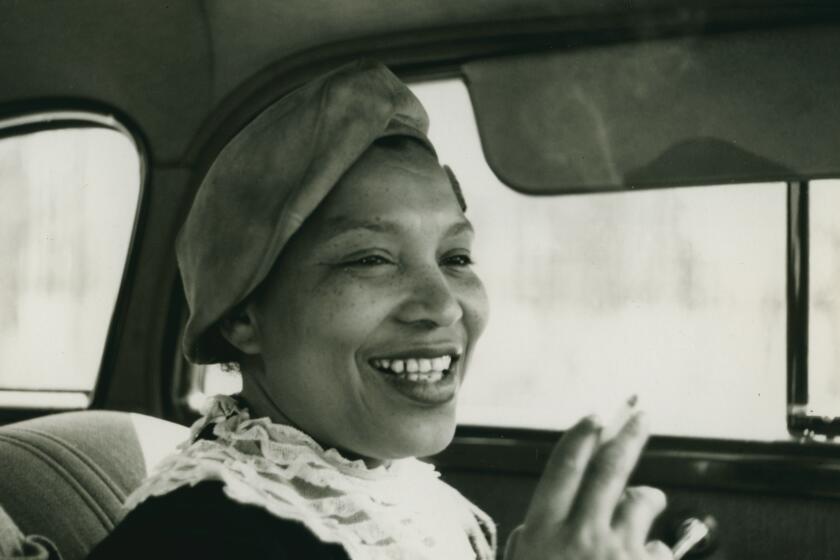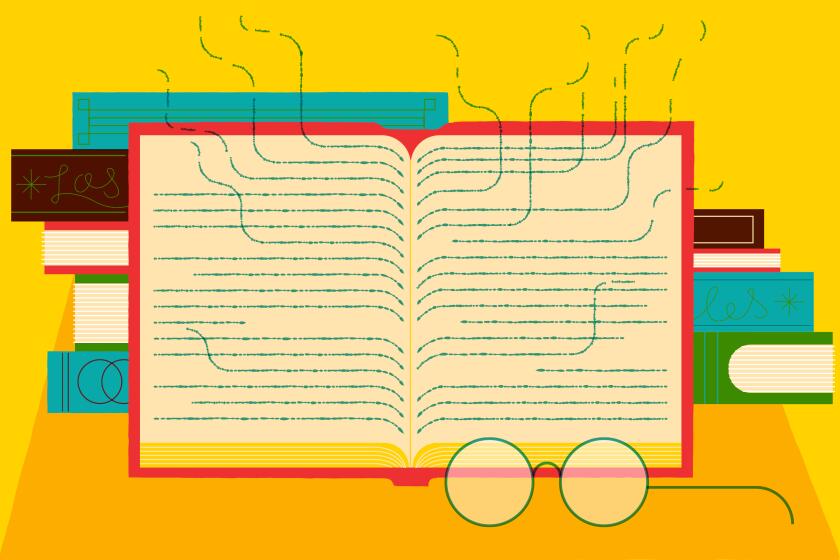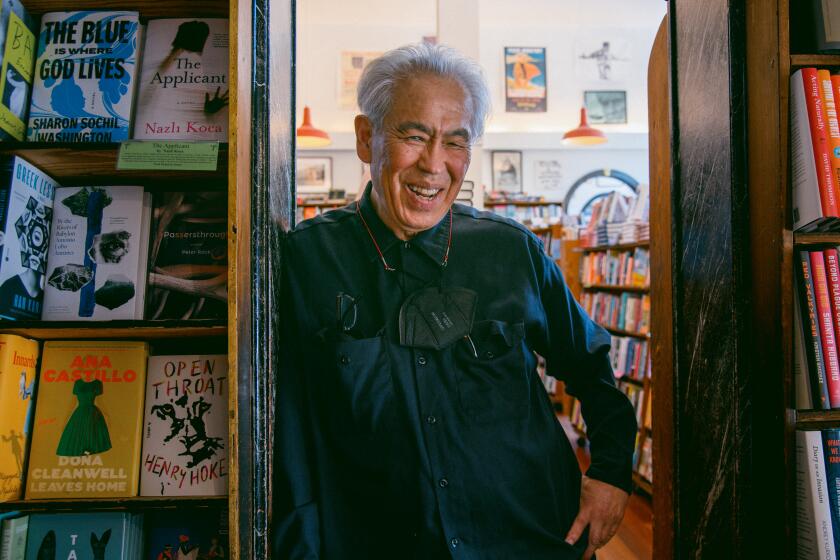An L.A. literary scholar confesses: California was my first love
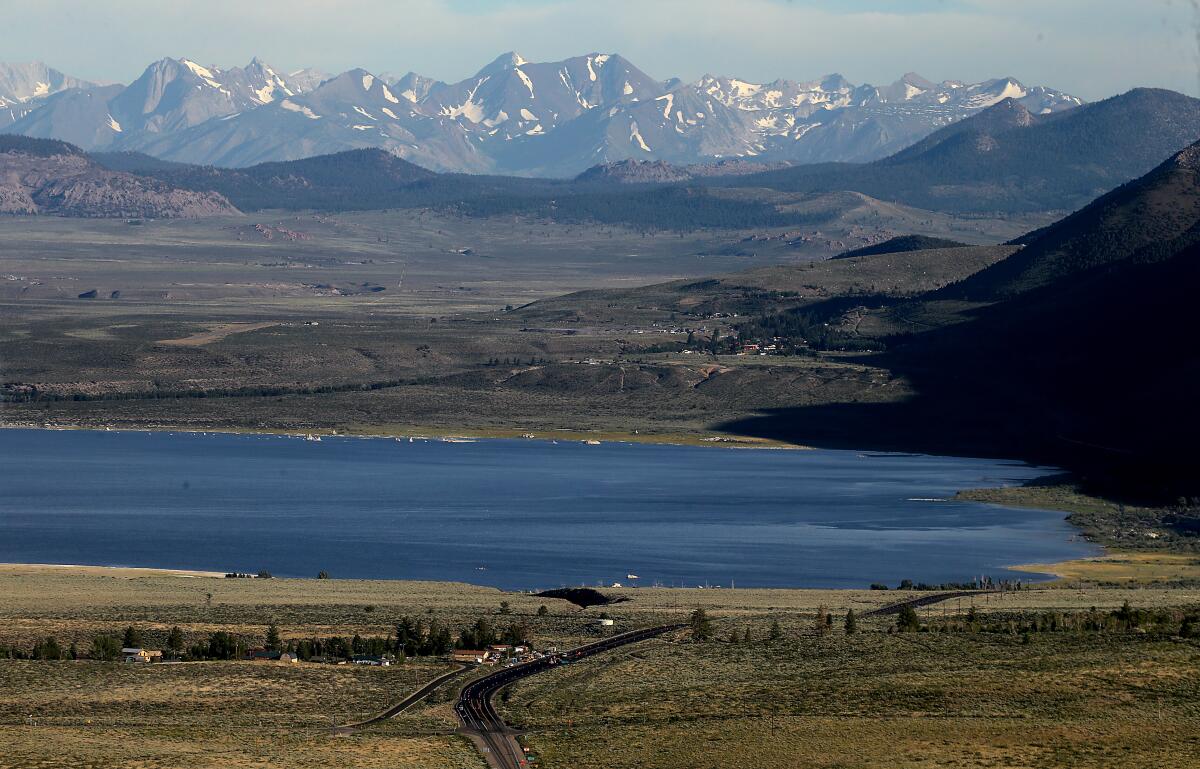
On the Shelf
Dear California: The Golden State in Diaries and Letters
Edited by David Kipen
Redwood: 544 pages, $30
If you buy books linked on our site, The Times may earn a commission from Bookshop.org, whose fees support independent bookstores.
Long before I ever loved L.A., I loved California. When I was a kid, book-browsing in San Francisco or a fishing trip to the Sierra felt infinitely more exotic than anything Los Angeles had to offer.
Then I went out of state for college and immediately started pining for the hometown I’d always taken for granted. Probably like generations of Angelenos, I spent my first blizzard thinking, “Hey, where are my beaches/my jacarandas/edible burritos/friends who actually listen to the Beach Boys?”
Putting together my new book, “Dear California: The Golden State in Diaries and Letters,” has made a Californian out of me all over again. This compendium of mine is partly dedicated “To everyone whose first answer, when asked out of state where they’re from, is ‘California.’” More and more, I find I’m one of those people.
Even — and perhaps especially — for those of us who live in Los Angeles, it can be difficult to find a vantage point from which to view this strange and sundry city objectively, comprehensively.
That said, this collection — at least chronologically — comes second. In 2018 I published “Dear Los Angeles.” Both books try to tell the story of a place by arranging, in day-by-day sequence, selections from centuries’ worth of journals and correspondence written there.
But “Dear California” differs completely from its antecedent for a couple of reasons. Not only are the entries largely new, but I finally got to include writing from people who barely, if ever, visited L.A.: Mark Twain, Oscar Wilde, Ambrose Bierce, Frida Kahlo, Henri Matisse, Herman Melville.
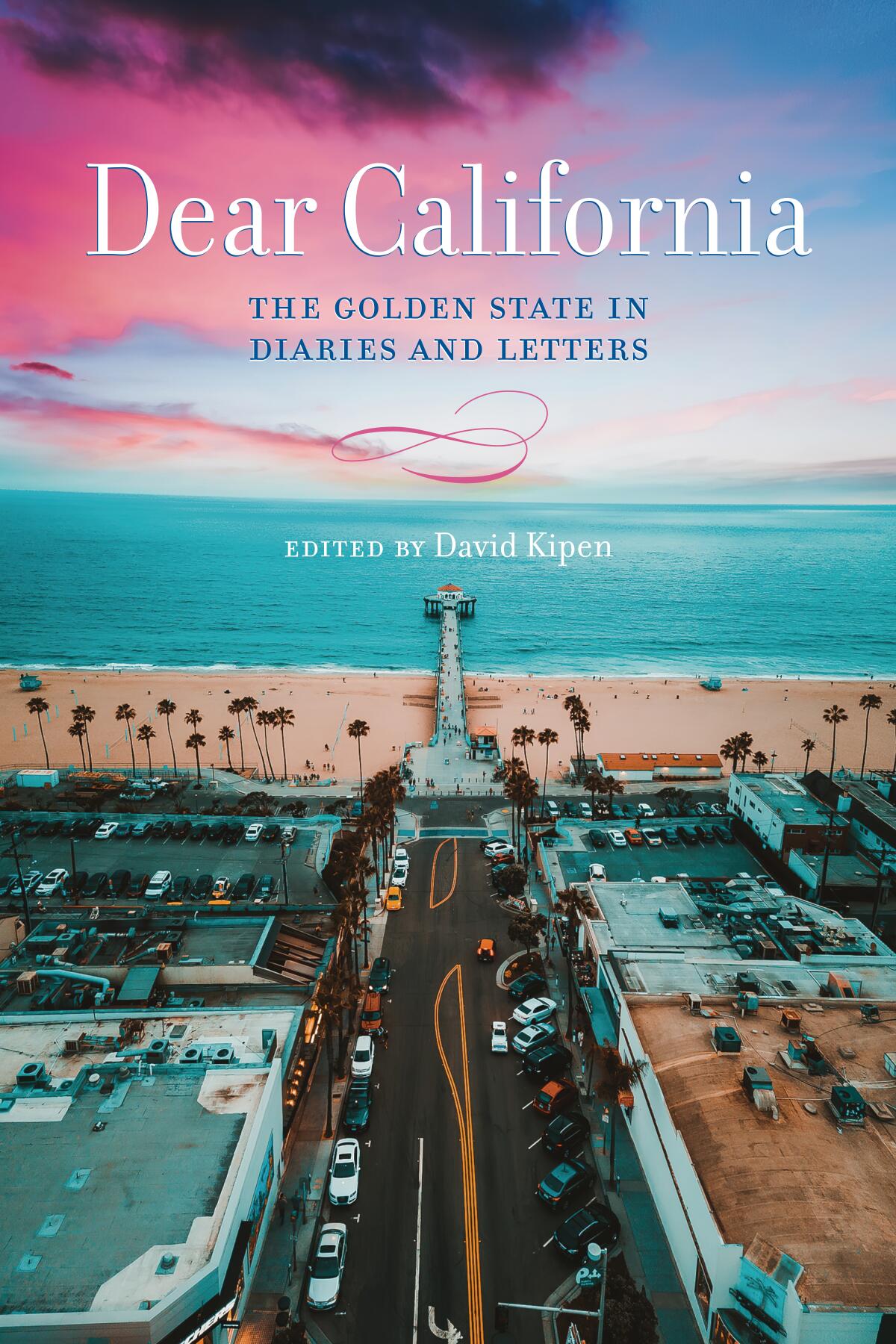
And second — obviously, but it definitely bears emphasizing — California and L.A. are two very different places. I know just how different, because I love them both, and those affections can clash as often as they harmonize.
I think I have a better grip on this tension after creating a book that tries to preserve what readers liked about “Dear L.A.” while also tackling an even richer, more multifarious place. Don’t take my word for California’s complicated glories. Just read over Zora Neale Hurston’s shoulder as she writes to a friend on July 20, 1941:
“…California is nice. Buen nice! … this California is a swell state, especially from Santa Barbara on north. … California does wear its hips a bit high. I mean all those mountains. Too much of the state is standing up on edge. To my notion, land is supposed to lie down and be walked on — not rearing up, staring you in the face. It is too biggity and imposing. But on the whole, California will do for a lovely state until God can make up something better…”
Hearing Hurston’s voice in her correspondence feels buen nice indeed. Her letter gets at the idea of California as a natural marvel — something harder for a visitor to appreciate about Los Angeles without prolonged exposure or at least the right guide. Hard to say whether Hurston is writing here about Big Sur or the Sierra, both of which she visited, but I don’t guess I’ll ever visit either again without thinking of this letter.
‘Zora Neale Hurston: Claiming a Space,’ PBS’s new ‘American Experience’ documentary, reveals a complicated early champion of the Black experience
I too visited the Sierra while researching “Dear California,” plus as much of the rest of the state as a pandemic and limited finances allowed. Treasures I turned up included Charles Kikuchi’s internment diary at the Daniel E. Koshland San Francisco History Center of the S.F. Public Library; Clark Ashton Smith’s letters to his fellow horror writer H.P. Lovecraft at the redoubtable Bookery in Placerville; and children’s librarian Clara Breed’s biography on the shelves of her own San Diego Public Library, from which she wrote loving, agonized letters to former patrons incarcerated at Manzanar.
Here in town I also ransacked, among others, UCLA’s Charles E. Young and William Andrews Clark libraries, LAPL’s central and branch libraries and my own nonprofit bilingual lending library, Libros Schmibros. From my sometime home away from home, the Huntington Library, I learned that “Los Angeles is hell.”
This important information — newly included in “Dear California,” like most of the book’s L.A. material — comes to us courtesy of Vita Sackville-West. She wrote it from Palm Springs on March 28, 1933, to her longtime worshiper Virginia Woolf, who had immortalized her in “Orlando.”
Vita added, “The Americans have an unequalled genius for making everything hideous. Hollywood however is fun. … We were taken round by Mr. Gary Cooper. … I doubt whether I shall ever recover from all this …”
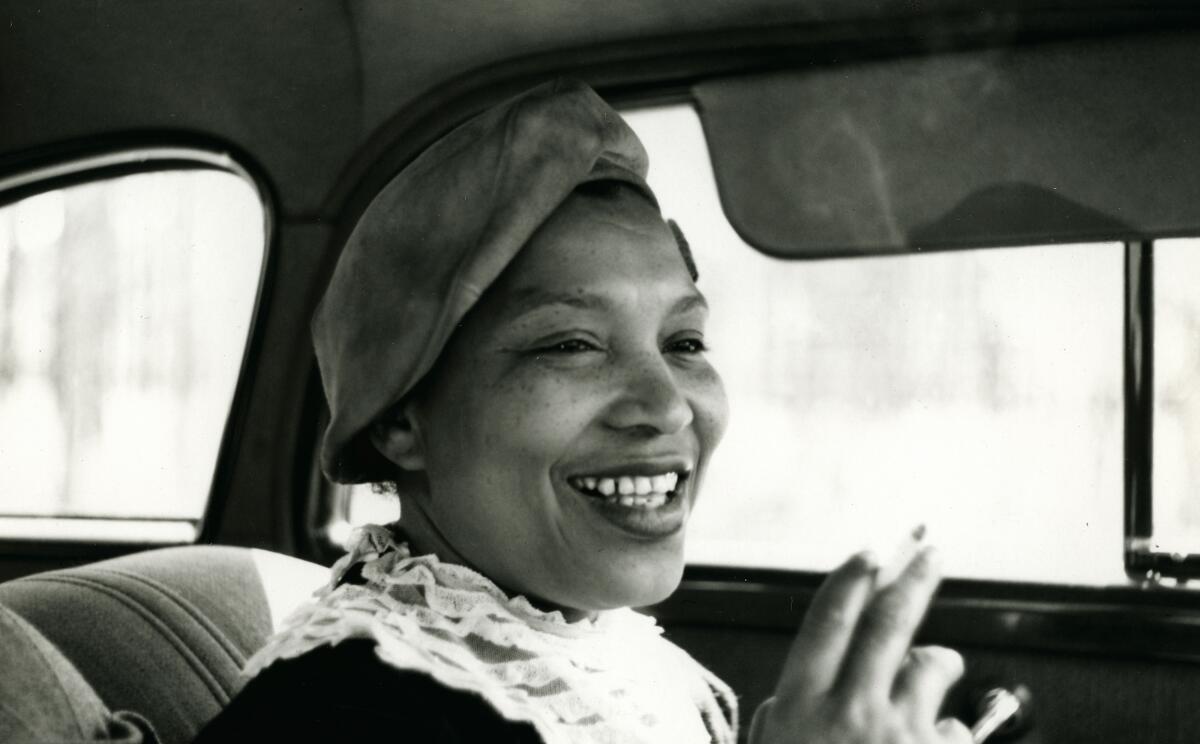
Southern California may well be hell to some, but, like the rest of the Golden State, it sure makes great copy. And can we just stipulate the sheer deliciousness of anybody writing to Virginia Woolf from Palm Springs? Look close, too, and you’ll see one of the key differences between Los Angeles and California: how quickly a traveler like Sackville-West skates rhetorically from L.A. to America to Hollywood, and jumbles up all three.
Author and Ultimate Bookshelf contributing editor David Kipen digs for treasure in a bibliography of L.A. fiction — and celebrates the “ghost novels.”
Not so the rest of California. Nobody would mistake San Francisco for America, or — we hope — Fisherman’s Wharf for San Francisco, but Vita delightfully makes L.A. into her all-purpose infernal emblem of everything cheapjack and fraudulent about our whole country. One salivates to know whether Woolf ever wrote back. Somebody should really edit a book of letters sent to California — though it probably won’t be me.
“Dear California” isn’t all road trips with Zora and studio tours with Gary Cooper. Interesting synchronicities kept popping up. Thanks to the book’s day-by-day structure, for example, I realized that, at the same time the Donner Party was freezing to death, Andrés Pico and John C. Frémont were signing the Treaty of Cahuenga, which effectively created American California.
Not long before he died, a member of the Donner Party wrote a moving poem in his memorandum book that, by rights, belongs in the collection — except, alas, I just discovered it last Tuesday. Let John Denton’s doggerel stand in for all the great jottings that didn’t make it into “Dear California.” Any book that claims to encompass the Golden State would be a joke, and while there are many jokes in “Dear California,” that particular delusion isn’t one of them.
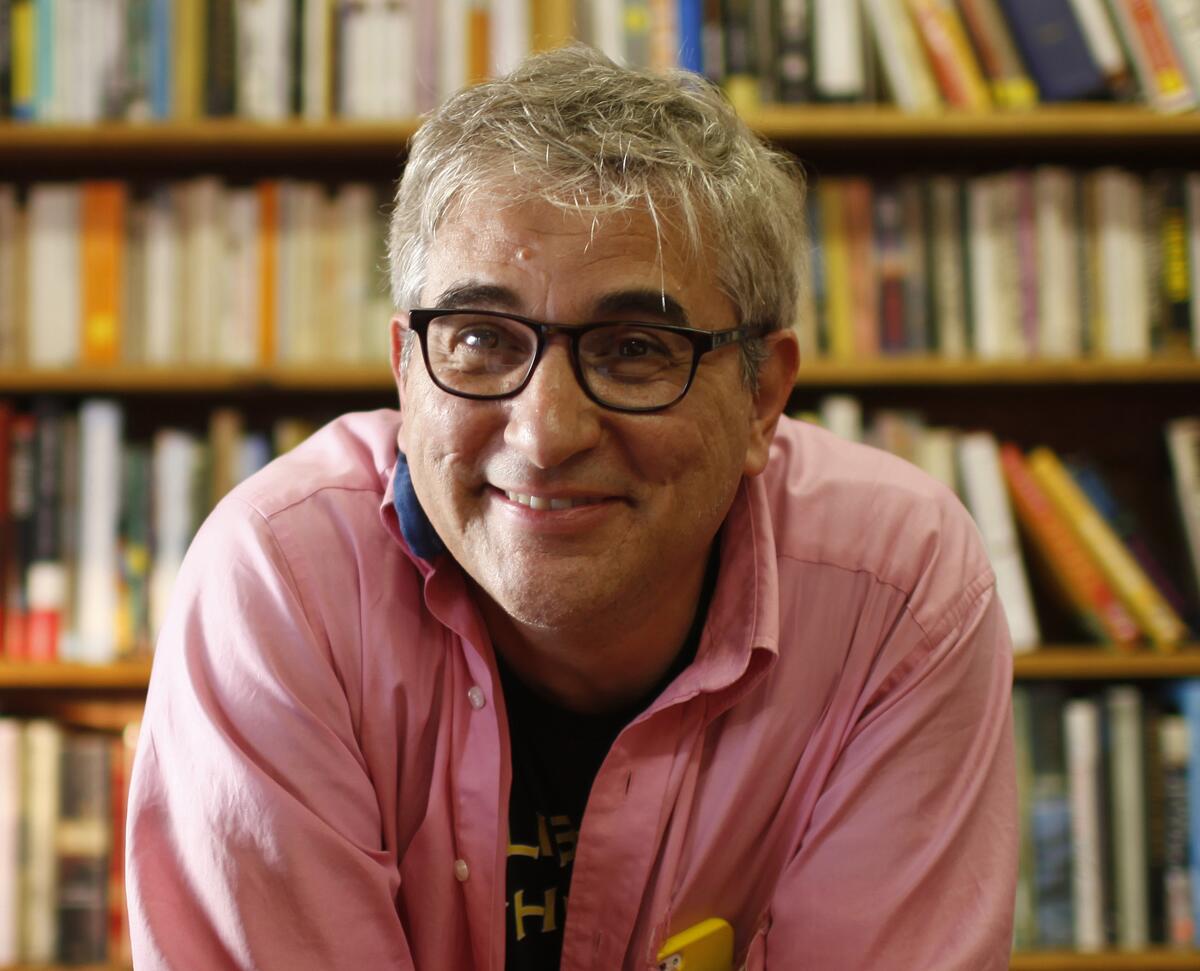
As an Angeleno making the rounds with a book about California, I’ll surely get grief at any book appearances in the Bay Area and around the state. Ultimately, California’s a big place, and I’m one guy without a research sabbatical. In addition to any civilian doubts, I also fully expect to meet the definition of a popular historian — i.e., somebody unpopular with historians.
Van Nuys native Paul Yamazaki, a longtime veteran of San Francisco landmark City Lights, will receive a lifetime honor at the National Book Awards next month.
But the chance, over the past 12 years, to steep myself in the history of two overlapping places that I dearly love has been the professional privilege of a lifetime. Now it’s time to finish polishing and send out my damn novel — which, by the way, started out about the California Gold Rush but is now, just as much, about the L.A. River.
In my heart, if not quite hydrologically, it’s all one watershed.
Kipen, the author of “Dear Los Angeles” and “Dear California,” is co-executive director of the Libros Schmibros Lending Library and teaches at UCLA. He will discuss his book at Diesel bookstore on Oct. 5.
More to Read
Sign up for our Book Club newsletter
Get the latest news, events and more from the Los Angeles Times Book Club, and help us get L.A. reading and talking.
You may occasionally receive promotional content from the Los Angeles Times.
